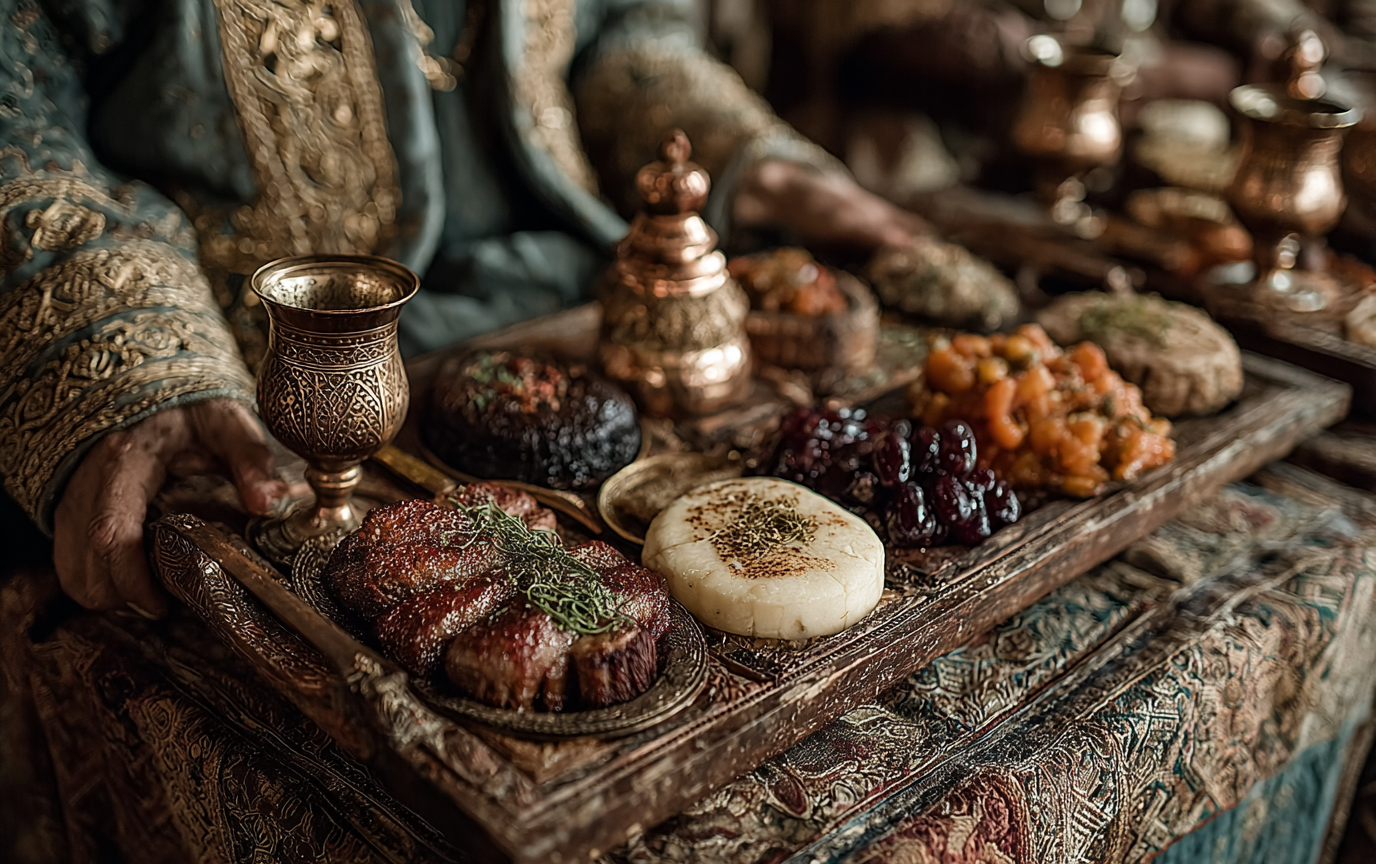In the swirling desert winds of the Middle East, there lies a profound tradition that is as old as the sands themselves—hospitality. It’s a rich tapestry of ancient customs, woven together with threads of Islamic teachings, cultural pride, and a heartwarming generosity that will make you feel like family almost instantly. Imagine stepping into a cozy tent under the starlit sky, the scent of spices wafting through the air, and the welcoming smile of a host greeting you as if you’ve known them for a lifetime. This is the essence of Middle Eastern hospitality—a warm embrace that invites you in, offering not just food and shelter but a deep sense of belonging.
Understanding Middle Eastern hospitality isn’t just a chance to experience cultural rituals; it’s an opportunity to learn about human connections, community, and the beauty of generosity. Why is it so significant, you ask? Because hospitality is more than a mere act; it’s a philosophy, a heartbeat of cultural identity that teaches us how to treat one another with kindness and respect. In this article, we’ll embark on a journey to unravel the layers of this age-old tradition, exploring its roots, key elements, and ways to practice this art ourselves. Buckle up, travelers, for we are about to dive deep into a world where the warmth of the heart is as abundant as the vast deserts.
Historical Roots: Bedouin Traditions and Islamic Teachings
To truly appreciate Middle Eastern hospitality, we must travel back in time to the rugged deserts where the Bedouins roamed. Here, hospitality wasn’t just a nice gesture—it was a matter of survival in an unforgiving landscape. Picture a lone traveler braving the relentless sun, parched and weary. It was the Bedouin’s sacred duty to offer a drink, a bite to eat, and a place to rest. This code of honor, steeped in tribal customs, dictated that guests be treated with respect and dignity, regardless of who they were or where they came from. The famous “three-day rule” stands out here: for three days, a host would honor their guest, never prying into their intentions or motives. It’s a beautiful testament to the selflessness that defines Bedouin culture.
Fast forward into the realm of Islam, and you’ll find that the teachings of the Quran amplify this tradition. The Prophet Muhammad himself exemplified exceptional generosity, urging his followers to embrace hospitality as both a moral duty and a means of spiritual elevation. Imagine wandering into a tent, tea bubbling softly on the stove, whilst golden dates and fragrant spice cakes await your delight. This blend of ancient customs and religious teachings shapes an unparalleled atmosphere of warmth, fostering an environment where all feel welcome.
Key Elements of Middle Eastern Hospitality
Generosity and Respect
At the heart of Middle Eastern hospitality lies true generosity—an ethos where hosts are expected to offer their very best. The Arabic word “karam,” which means generosity, encapsulates this spirit beautifully. It’s not merely about serving food but about honoring your guests as if they were royalty. Have you ever stepped into someone’s home and immediately felt a sense of cherished belonging? That’s the magic of Middle Eastern hospitality.Traditional Drinks and Sweets
Huwa, the sweet aroma of cardamom coffee greets you even before you cross the threshold. A cup of Arabic coffee serves more than caffeine; it’s a gesture of goodwill, a symbol of warmth, accompanied by dates or baklava that tantalize the taste buds and bring people together. Sharing these simple delights is a bridge to community and camaraderie, where stories are woven and laughter echoes.Communication and Relationship Building
Here, hospitality is not just about what’s on the table but also about forging connections. Engaging in friendly conversations, sharing anecdotes, and even the rhythm of laughter create a bond that lasts longer than the meal itself. It’s not uncommon to find yourself deep in conversation about life, love, and laughter while passing the time over delicious bites. Every word shared adds depth to the experience, creating ties that feel almost familial.Preparation and Entertainment
A true Middle Eastern gathering is a splendid extravaganza! The preparations span beyond the kitchen—homes are adorned with traditional artistry reminiscent of the rich history they carry. Music swells in the air, or a storyteller might even spin a tale that makes you feel as if you’re part of a culture alive with colors. Each event is a celebration of life, laughter, and connection.
The Art of Welcoming: A Guide to Practicing Middle Eastern Hospitality
Now that we’ve unraveled the essence of hospitality in this vibrant culture, why don’t we embark on a mini-guide to bring a taste of Middle Eastern warmth into your own gatherings?
Warm Greetings
Welcome your guests with a smile that shines like the desert sun. A firm handshake, or perhaps a kiss on both cheeks, can set a friendly tone. A warm greeting creates a welcoming atmosphere right from the start.Serving Traditional Beverages
Master the art of brewing tea or coffee rich with loved flavors. The joy is not just in drinking but in the bond formed over cups being passed around. For added sweetness, a platter of pastries and dates should tempt their taste buds.Sharing Meals with Abundance
A table full of vibrant dishes signifies generosity. Striving for variety, let local specialties grace your dining experience. Keep the plates filled and the courses flowing—nobody leaves just after a main dish; linger over desserts and coffee.Encourage Meaningful Conversation
Create a space where storytelling and laughing intertwine. Ask questions, listen attentively, and share your narratives; each connection strengthens the friendship forged.Unwavering Respect
Make your guests feel cherished. Continuously offer support and encouragement, ensuring that they feel aright at home, be it with cozy seating or comfortable settings.
Conclusion
As we draw the curtains on this splendid journey through the nuances of Middle Eastern hospitality, it becomes clear that it is so much more than mere actions. It’s a beautiful philosophy that underscores respect, generosity, and understanding, transforming each gathering into a celebration of community. Every feast and story shared signifies deep-rooted cultural values passed down through generations.
In a world that at times feels disconnected, let’s remind ourselves of the importance of embracing hospitable practices in our own lives. By practicing these gestures, we can spread kindness, forge new connections, and honor one another as the people of the desert once did, with open arms and eager hearts.
So, fellow travelers, the next time you welcome someone into your home, remember the value of genuine hospitality. Make it a point to serve that cup of tea, share your laughter, and let them feel like they’ve just stepped into a warm embrace.
Interested in more insightful reads? Check out our Travel Tips section for the latest advice. For lifestyle inspiration, explore our Lifestyle category, and dive into amazing destinations at Destinations. Don’t forget to connect with us on YouTube, or follow our adventures on Instagram and Pinterest.
Travel well, share joy, and may your journeys always be filled with the beauty of hospitality.

















